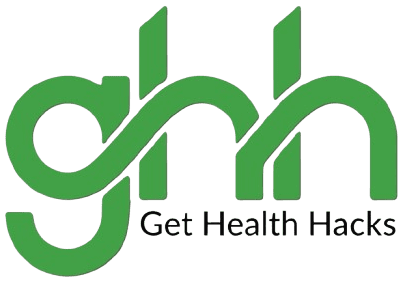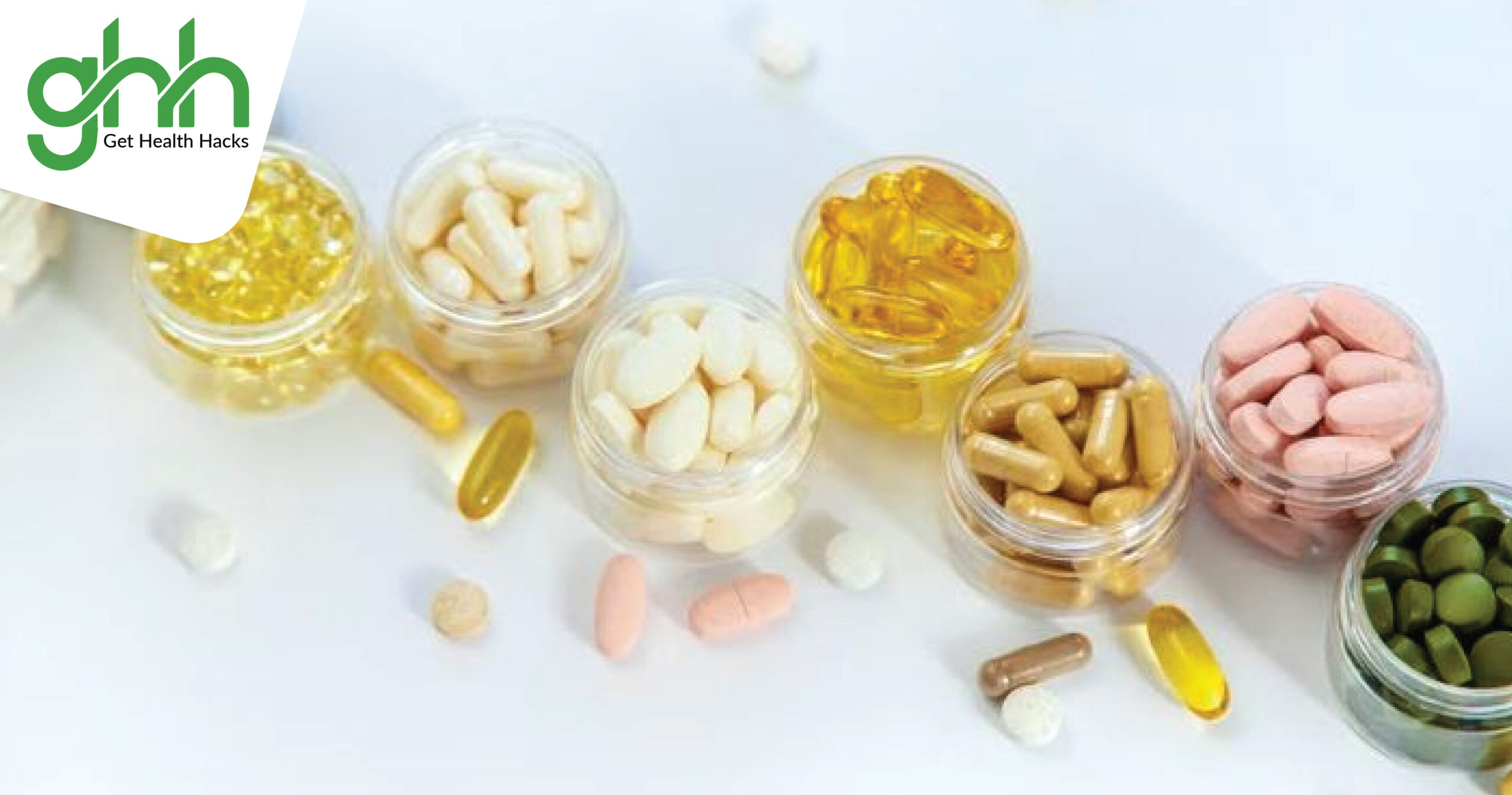Energy drops have become as common as morning coffee runs nowadays. But the good news is that consuming the vitamins to boost energy and metabolism will help you live a long life.
Let’s explore how certain vitamins to boost energy and can transform your daily life. Whether you’re a busy professional hitting the afternoon wall or someone over 40 noticing your energy isn’t what it used to be, this guide will light the way to renewed vigor.
In this article, you will learn how you need to get a few vitamins and how the 13 best vitamins to boost energy and your metabolism level.
Why Your Energy Levels Matter More Than You Think
Just like any other machinery, your body needs the right fuel and maintenance to run at its peak. Low energy levels affect everything from your productivity to your relationships.
Some recent studies paint a telling picture:
- 60% of adults report regular fatigue
- 45% say low energy affects their work performance
- 72% have tried at least one energy-boosting supplement
But popping random vitamins isn’t the answer. Just give what your body needs!
Signs That Your Body Needs Vitamins To Boost Energy
Your body sends clear signals when it needs an energy boost. Some common signs are:
Physical Signals
- Morning fatigue despite adequate sleep
- Mid-afternoon energy crashes
- Muscle weakness or trembling
- Irregular heartbeat or palpitations
Mental Markers
- Brain fog or difficulty concentrating
- Memory lapses
- Mood swings
- Decreased motivation
Lifestyle Indicators
- Increased caffeine dependence
- Constant food cravings
- Disrupted sleep patterns
Some quick facts about metabolism:
- Basal metabolic rate fulfills 60-75% of daily energy usage
- Vitamin deficiencies can slow metabolism by 30%
- Age-related metabolic changes start as early as 30
Table 1. Metabolism Changes Over Time
| Age Range | Metabolic Change | Energy Impact |
| 20-30 | Peak efficiency | Highest natural energy |
| 30-40 | -2% per decade | Moderate decline |
| 40-50 | -5% per decade | Noticeable decrease |
| 50+ | -8% per decade | Significant reduction |
The 13 Best Vitamins To Boost Energy Levels
It can be frustrating to feel tired all the time. Let’s look at your best options:
1. Vitamin B12: Your Energy Grid
This vitamin helps to keep your energy level up and function effectively.
Here’s what it does:
- Helps your body to make red blood cells (they carry oxygen – pretty important!)
- Turns the food you eat into the energy you can use
- keeps your brain sharp and focused
The tricky part? We might be B12 deficient; if we are following a vegan diet, are over 50, take certain stomach medications, or have digestive issues.
Best food sources for B12:
- Eggs (one of my breakfast favorites)
- Greek yogurt
- Salmon
- Lean beef
- Fortified cereals
2. Iron: Your Oxygen’s Best Friend
Iron transports oxygen to your cells. Its deficiency will make you feel exhausted.
Why iron matters for your energy:
- Helps create hemoglobin (the blood oxygen carrier)
- Supports muscle function
- Keeps your brain working at its best
Here’s a simple way to know if you might need more iron:
- Do you feel dizzy when standing up quickly?
- Are you always cold?
- Do you look pale?
My tip: Try having an orange with your iron-rich breakfast for better absorption of iron!
3. Vitamin D: Bottled Sunshine
This vitamin boosts our happiness levels and makes us feel amazing. But most of us don’t get it enough.
What vitamin D does for your energy:
- Helps your muscles work efficiently
- Boosts your mood (goodbye, energy-draining blues!)
- Strengthens your immune system
You need more vitamin D if you:
- Spend most time indoors
- Live in a cloudy climate
- Feel more tired in winter
- Have dark skin
Table 2. Practical Vitamin D Sources
| Source | Amount | Easy Ways to Get It |
| Sunlight | 15-20 mins daily | Morning walk |
| Fatty fish | 2-3 servings weekly | Lunch salads |
| Eggs | 1-2 daily | Breakfast |
4. Magnesium: Your Body’s Energy Switch
You know that tired-but-wired feeling you get sometimes? Magnesium might be what you’re missing. According to studies about 75% of us don’t get enough magnesium. That’s huge! And here’s why it matters for your energy:
When your magnesium levels are good:
- Your muscles work better (no more random twitches!)
- You sleep more soundly
- Your body turns food into energy more efficiently
- Your stress levels stay manageable
Some common signs of magnesium deficiency:
- Getting muscle cramps (especially at night)
- Feeling anxious for no reason
- Having trouble falling asleep
- Craving chocolate like crazy (yep, that’s a real sign!)
Best food sources simple way to include them:
- Dark leafy greens (try them in smoothies)
- Pumpkin seeds (great afternoon snack)
- Avocados (perfect on toast)
- Dark chocolate (aim for 70% cocoa or higher)
- Bananas (nature’s energy bar)
5. B-Complex: The Energy Dream Team
Each vitamin in this group has a specific job to do, and they work best together. Let’s break down each of their role for your body’s energy needs:
B1 (Thiamin):
- Turns carbs into energy
- Keeps your nerves healthy
B2 (Riboflavin):
- Helps break down proteins and fats
- Supports red blood cell production
B3 (Niacin):
- Powers your metabolism
- Helps with DNA repair
Table 3. B-Vitamin Energy Benefits Chart
| B Vitamin | Energy Role | Best Time to Take | Best Source |
| B1 | Quick energy | Morning | Whole grains, beans, nuts |
| B2 | Sustained power | With meals | milk, eggs, mushrooms |
| B3 | Metabolism boost | Morning/afternoon | chicken, tuna, brown rice |
| B6 | Protein processing | With protein meals | Beef liver, fish, starchy vegetables |
Pro Tip: If you’re feeling extra tired, B vitamin intake is often the quickest fix.
6. Vitamin C: Beyond Immune Support
Looking for vitamins to boost energy levels in your body, add Vitamin C in your diet plan. It plays an important role in your energy production.
Why vitamin C matters for energy:
- Helps your body absorb iron better
- Supports your adrenal glands (stress managers!)
- Powers up your immune system (being sick is exhausting!)
- Acts as a powerful antioxidant
You might notice these signs when your body needs more vitamin C:
- Getting tired more easily than usual
- Taking longer to recover from workouts
- Catching every cold that goes around
- Having slow-healing cuts or bruises
Citrus fruits, tomatoes, kiwifruit, broccoli, and strawberries are some of the major sources of this vitamin.
7. Vitamin B6: The Protein Processor and Metaboliser
Vitamin B6 is usually forgotten when it comes to the best vitamins to boost energy and metabolism. It ensures a steady supply of energy to our body throughout the day by breaking down proteins and carbohydrates.
Here’s why Vitamin B6 is crucial for boosting energy:
- B6 helps regulate mood and energy levels by creating serotonin and dopamine.
- It helps your body use the protein more effectively, thus helping in muscle repair and energy production.
- Proper levels of B6 can enhance your focus and brain power, helping you stay alert during long workdays.
Food Sources for Vitamin B6:
- Chicken and turkey
- Tuna and salmon
- Bananas
- Sweet potatoes
- Chickpeas
The recommended dosage is 1.3–1.7 mg per day (varies by age and gender) by doctors.
Some common symptoms of Vitamin B6 deficiency include irritability, confusion, and low energy.
8. Vitamin B1 (Thiamine): Carbohydrate Metaboliser
Vitamin B1, also known as Thiamine, plays a key role in converting carbohydrates into energy. It’s an essential nutrient for your body if you have a high-carbohydrate diet.
Your body needs vitamin B1 because it is:
- Helping your body use carbohydrates efficiently.
- Ensuring smooth communication between the brain and body, reducing feelings of fatigue.
- Promotes heart health.
Natural Sources:
- Whole grains like brown rice and oats
- Beans and lentils
- Sunflower seeds
- Pork
Its average intake for adults is around 1.1–1.2 mg daily.
Feelings of extreme fatigue, muscle weakness, and mental lethargy are common symptoms of its deficiency. This vitamin is especially important for people who consume a lot of refined carbs.
9. Vitamin B2 (Riboflavin): The Metabolic Supporter
Riboflavin (Vitamin B2) is another key player in the energy production process. It supports the metabolism of fats, proteins, and carbohydrates, ensuring that the food you eat is efficiently converted into fuel.
Why Vitamin B2 is Important:
- Reduce tiredness.
- Maintains your eye health, which can make you feel fatigued otherwise.
- Controls fatigue by reducing cellular damage.
Sources of Vitamin B2 are:
- Dairy products (milk, cheese)
- Eggs
- Spinach and other leafy greens
- Almonds
The daily Requirement is 1.1–1.3 mg for adults.
Signs you may need more Vitamin B2 include cracked lips, a swollen tongue, and sensitivity to light, etc.
10. Vitamin B3 (Niacin): Metabolism booster
Like Vitamin B2, Vitamin B3, or Niacin, is one of the vitamins to boost energy and critical player to gear up the metabolism rate.
What it does for your body:
- Enhances energy production by supporting enzymes involved in the energy cycle.
- Improves circulation which allows for better blood flow and nutrient delivery.
- Supports cholesterol balance by keeping your cholesterol levels in check. It can have a direct impact on energy levels, especially as you age.
Some major sources of Niacin are:
- Chicken and turkey
- Tuna and salmon
- Mushrooms
- Brown rice
It is healthy to take 14–16 mg per day for adults.
Low energy levels, digestive problems, and even skin conditions like dermatitis are signs that you need this vitamin in your routine.
11. Vitamin B5 (Pantothenic Acid): The Stress Buster
Vitamin B5, also known as Pantothenic Acid, plays a key role in energy metabolism and is our main stress manager.
Here is a brief overview of how vitamin B5 lifts energy levels in our body:
- Pantothenic acid helps your adrenal glands manage stress, reducing fatigue.
- It helps break down fats into usable energy, keeping you fueled throughout the day.
- It promotes healthy skin which results in better vitamin D absorption, and improved energy levels.
Natural Sources are:
- Avocados
- Chicken and turkey
- Sunflower seeds
- Mushrooms
- Fortified cereals
The recommended dosage by nutritionists is around 5 mg per day for adults.
If you often feel low after a stressful week, you may need to increase your Vitamin B5 intake.
12. Vitamin E: The Cell Protector
Vitamin E is best known for its antioxidant properties. It protects your cells from damage. It plays an important role in maintaining healthy blood vessels and can support overall energy levels.
Energy-Boosting Benefits of Vitamin E are:
- Protects against oxidative damage: Vitamin E shields your cells from free radical damage, which can slow down energy production.
- Improves immune function: A healthy immune system is key to preventing energy-zapping illnesses.
- Supports healthy skin and eyes: Keeping these systems functioning smoothly reduces overall energy drain.
Common sources of Vitamin E are:
- Almonds and sunflower seeds
- Spinach
- Sweet potatoes
- Olive oil
- Peanuts
The daily requirement of vitamin E is normally 15 mg per day for adults.
If you often feel tired after a long day outdoors or in polluted environments, it might be time to consider more Vitamin E in your diet.
13. CoQ10: The Cellular Energizer and Antioxidant
Coenzyme Q10 (CoQ10) is a naturally occurring antioxidant in the body that plays a pivotal role in energy production at the cellular level. It is particularly important for heart health and muscle function.
How CoQ10 Boosts Energy:
- CoQ10 is crucial for ATP production, the energy currency of the cell.
- CoQ10 supports health health as it supplies energy to it.
- Many people, who exercise regularly, notice improved stamina and reduced fatigue when they boost their CoQ10 levels.
Sources of CoQ10 are:
- Organ meats (like liver)
- Fatty fish (salmon, mackerel)
- Spinach and broccoli
- Whole grains
On a daily average, 30–200 mg per day is enough for your body’s needs.
People over 40 may especially benefit from CoQ10 supplementation, as natural levels of this vitamin tend to decline as one age.
Timing Matters When It Comes To Vitamins To Boost Energy
Some vitamins are best taken at certain times of the day:
Morning: B vitamins and vitamin C are ideal in the morning.
Evening: Magnesium and vitamin D are often recommended at night as they can support relaxation and sleep.
Best Sources Of Vitamins For Different Diets
Your dietary choices can greatly impact the vitamins your body receives. Here are some of the best sources for some popular diets:
| Diet | Vitamin | Sources |
| Keto Diet | Vitamin A | Liver, egg yolks, butter |
| Vitamin D | Salmon, mackerel, sardines | |
| Vitamin E | Nuts, seeds, avocado | |
| Vitamin K | Leafy greens like spinach, kale, and broccoli | |
| Vitamin C | Bell peppers, leafy greens | |
| B-vitamins | Meat, fish, eggs, dairy | |
| Plant-Based Diets | Vitamin B12 | Fortified foods like plant milk, nutritional yeast |
| Vitamin D | Sunlight exposure, supplements | |
| Iron | Legumes, seeds, fortified |
Final Thoughts
Finding the right balance of vitamins is necessary to boost your energy and metabolism. Stay consistent with your intake and be mindful of your dietary needs. You’ll feel more energized and healthier in no time!
Disclaimer
Get Health Hacks is a digital publisher and providing health and wellness content as general information. Our purpose is to provide you information, hacks, and guides to learn and achieve health goals. The content on our website, newsletter, and socials including text, graphics, images, and other material is general in nature. You should have to consult your healthcare provider before starting any nutrition, diet plan, exercise, fitness training, and wellness program.




Pingback: 10 Simple Hacks to Stay Hydrated All Day - Get Health Hacks
Pingback: 4 Powerful Foods That Detox The Liver Naturally - Get Health Hacks